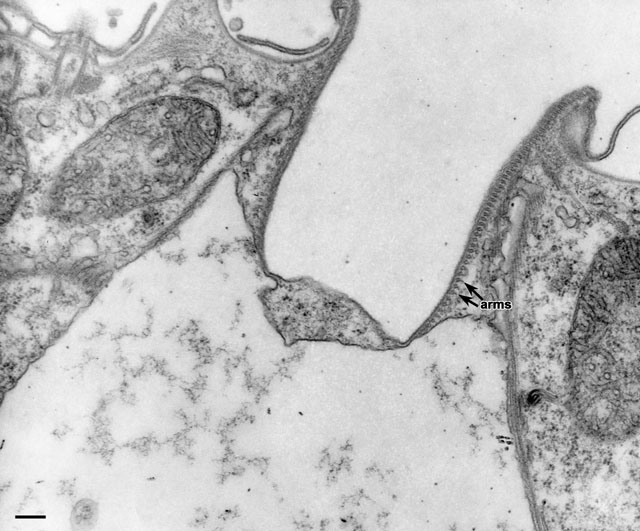|
The contractile vacuole pore is a 1µm diameter indentation of the
surface plasma membrane that is covered on its cytosolic side with one
layer of helically coiled microtubules that bear arms. The bottom of
the pore is covered only by an extension of the plasma membrane
without additional obvious cytoskeletal elements. Ribbons of
microtubules, the number equal to the number of radial arms, arise
from the cylindrical margin of the pore and extend inward at a sharp
angle from the pore into the interior of the cell. They then radiate
out from the pore remaining close to the cell’s surface. At the pore
the CV is bound to these ribbons and extends up into the angular space
between each ribbon and the side of the pore. The CV membrane is
pulled up against the bottom of the pore where it makes close contact
with the intact pore membrane. Upon rounding of the CV such a
configuration will probably aid the close approach of the two
membranes around the pore rim at the bottom of the pore so that the
membranes will be able to fuse together and open the CV to the outside
bringing about systole. EM taken on 4/8/80 by R. Allen with Hitachi
HU11A TEM. Neg. 18,000X. Bar = 0.2µm. Published in J. Protozool.
35:63-71, 1988.
|
